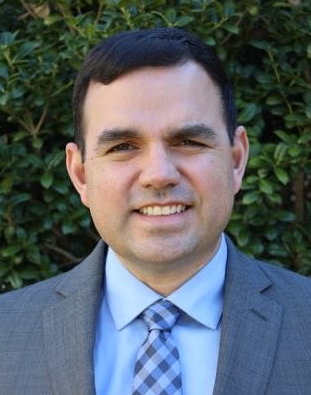
Public Health’s Role During a Hurricane
Course Description:
Public Health’s Role During a Hurricane is second in a eight-course learning series.
Public Health works with local government and healthcare agencies to prepare and protect communities from disasters including a hurricane. Public health departments lead health and medical actions in their jurisdictions, which can include evacuations, health surveillance during response and often continuing into recovery.
Target Audience
Public Health, First Responders, Emergency Response and Preparedness Professionals and Healthcare Practitioners
Learning Objectives
- Recognize the relevant local government, public health, and healthcare agencies involved disaster preparedness
- Identify relevant local government, public health, and healthcare agencies respective roles and decision-making abilities
- Correctly associate the respective resources with the relevant agencies during and after a hurricane
- Discuss how roles change and differ as an area transitions from an active emergency through to recovery
Instructors:

Stephen Murphy, PhD, MPH, MBA
Assistant Professor Department of Environmental Health Sciences,
Tulane University School of Public Health and Tropical Medicine
Stephen Murphy has significant practice-based experience shaping and implementing local, state, federal, and private sector public health emergency preparedness, homeland security, and disaster management and resilience programs. His experience includes developing and managing preparedness plans, exercises, and operational responses for major metropolitan jurisdictions addressing environmental threats such as Ebola Virus Disease, hurricane evacuation, pandemic influenza, coastal oil spills as well as planning for high-threat events of national significance such as the Super Bowl and other large-scale mass gatherings.
He has served on numerous state-wide advisory boards in Louisiana and was the former Planning Section Chief for New Orleans Office of Homeland Security & Emergency Preparedness in the years following Hurricane Katrina.
Murphy has delivered numerous national and statewide conference and townhall presentations covering public health emergency preparedness and disaster management topics. His research is focused on developing effective, actionable disaster resilience strategies – personal and systems-level – as well as the cumulative impact of chemical and non-chemical stressors on communities facing environmental health threats, disasters, and health disparities.

Jennifer Kiger, MPH
Jennifer Kiger, MPH is the Chief of the Office of Public Health Preparedness and Response at Harris County Public Health.
Jennifer received her Master’s degree in Public Health at UTHSC 2006.
Her experience includes: Epidemiologist for the Houston Health Department, Program Manager for the Centers for Public Health Preparedness, and various preparedness management positions at Texas Department of State Health Services.
She has responded to several events including 2008 Hurricanes, H1N1 2009, TX West Nile Response, TX Wildfires 2010, Flooding 2016, Hurricane Harvey 2017, and ITC Chemical Response 2019.

Cody Price, MPH
Cody Price, MPH is a recent Master of Public Health (Health Policy) graduate out of Texas A&M University – May 2020. He has previously worked with the Texas Health Institute as well the Southwest Rural Health Research Center (SRHRC).
While with the SRHRC, Cody studied U.S. rural long-term care emergency preparedness on a project funded by the U.S. Health Resources and Services Administration (HRSA).

Christopher Medina, M.A., TEM
Christopher Medina, MA, TEM is the Texas State Medical Operations Center Director at the Texas Department of State Health Services.
Chris received his Master’s degree in Business and Organizational Security Management at Webster University.
Chris is a retired military officer with substantial emergency management experience throughout his 20 year career in the Army to include supporting Operation Tomodachi (2011 Japan Tsunami/Earthquake), and 2014 Fort Hood Active Shooter.
He has worked for DSHS for the last five years, supporting numerous disasters to include severe weather and flooding events, Hurricane Harvey 2017, COVID-19 pandemic and other state disasters.
Available Credit
- 1.00 Participation/CETulane Professional and Continuing Education (PaCE) awards 1.00 hour(s) of credit for completing Public Health’s Role During a Hurricane
Price
Required Hardware/software
System Settings
This course is designed to work most effectively if your computer and internet connection meet certain minimal requirements. This course can be accessed using a Windows 10 PC or a Mac with High Sierra1, Mojave, or Catalina. Pop-up blockers should be disabled when viewing the course. Internet Explorer 11 (for Windows 10), or the current version of Google Chrome, Mozilla Firefox, or Apple Safari (for Windows 10 and or Mac) is required. Many of our courses require Java and JavaScript enabled.
Links to External Websites
Links to websites outside this course will open in a new window or tab. Some browsers may minimize the course window. If this occurs, maximize the course window to return to the course.
Adobe Acrobat Reader (for desktops and laptops)
Adobe Acrobat Reader is required to access some documents in this course. If you need to download a free copy of Acrobat Reader, click here.
Internet Connection Speed
A minimum download speed of 1.5 Mbps is recommended for an optimal experience, which is commonly the speed associated with a basic DSL or a cellular/satellite connection. A faster connection, such as cable or fiber service, with further enhance your online experience. A Wi-Fi connection is generally acceptable, but it is dependent upon one of the two services mentioned above. You can check your internet connection speed at http://www.speedtest.net/.

 Facebook
Facebook X
X LinkedIn
LinkedIn Forward
Forward